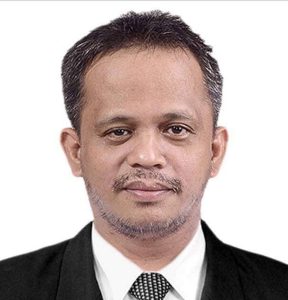
Those are the things that will truly empower citizens. However, such ideals might remain as such if we do not have a catalyst for change or some kind of a revolution, so to speak.
The Philippines has not matured into a genuine democracy because of the inability of the Filipino people to actualize a common vision that unites the country as one. But the reason why this appears to be the case is now clear. The enemy is elitism in Philippine society. It dictates the course of the public lives of Filipinos. In order to respond to what ails the public sphere in the Philippines, a radical leader is viewed as necessary.
This radicalism though may be judged as a form of populism. A despot often disguises himself as a messiah in order to manipulate people.
Indeed, institutional reforms cannot be realized unless people observe the rule of law. Democracy only thrives in dialogue and not in that can of language that might poison the public sphere. People must have the liberty to express themselves in terms of dissent and protest. Disruption in the social and public sphere characterizes what is happening in the country right now. The Filipino people, however, are not in an unfamiliar territory. We have never been at peace with ourselves.
Many critics refuse to see is that fact that under ilustrado politics, Philippine society has not attained meaningful progress or inclusive growth. While the lack of political maturity is often blamed for our problems, the fact of the matter is that enslavement of the Filipino people by the oligarchic nature of its economy is deliberate. Such is meant to perpetuate the old order. In the end, our political responsibility remains. We must seek to dismantle this unjust configuration by disarticulating power away from the center.
Any radical change is an act of defiance that is rooted in that resurgent revolution that ultimately seeks to topple the hegemonic powers that continue to degrade the dignity of the Filipino nation. But while such is the case, radical rule also reveals the open the institutional and democratic deficits in the country. This is something that comes as a result of its colonial experience. The focus on the strong personality of an anti-establishment leader often covers up fundamental problems. Democracy is not about those at the top.
However, maverick politicians often possess something that the people can take advantage of – political will. For many decades, the intellectual and economic elites in the capital have defined for the Filipino people the meaning of political correctness and even the meaning of their lives.
The ilustrado type of politics determined how the state can be controlled to serve the agenda of the powerful. Those in Manila have dominated all the discussions and dictated an unfair political framework that the Bisaya in the South are to simply follow.
The biggest enemy of progress is our political divisiveness. Politics divides people. The divisive nature of politics is like a cancer that has not withered away since the colonial times. But the elitist nature of Philippine democracy is now threatened by the fact that people are left with no option but to embrace radicalism.
Progressive leadership can result to changes in structures and practices. However, this is not to condone any violation against the human rights of people. The right intent in electing a radical leader is to highlight the type of defiance so needed to overhaul elitist rule.



